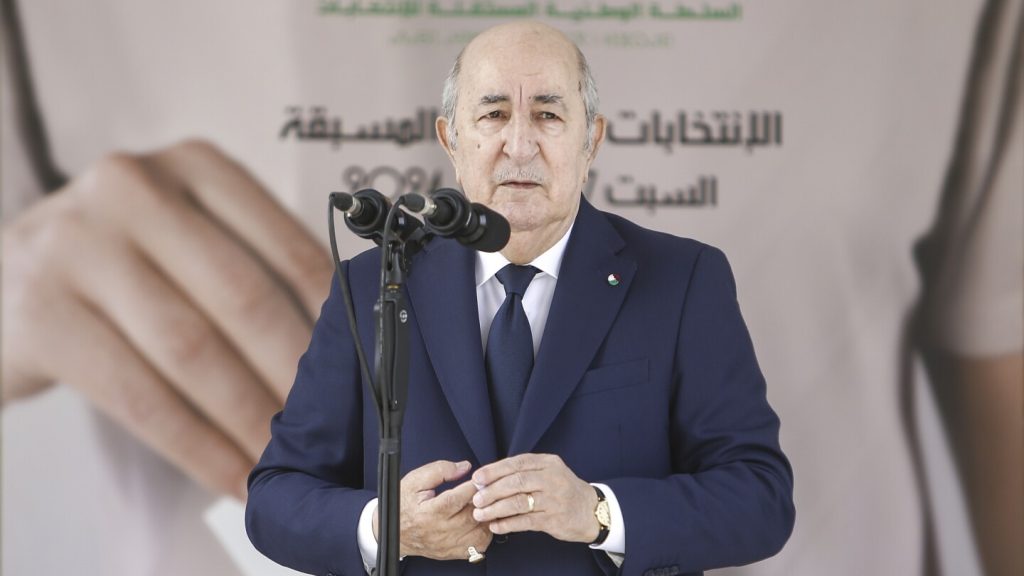President Abdelmadjid Tebboune of Algeria won the country’s election with a reported 94.7% of the vote, far surpassing his challengers. However, Tebboune and his opponents criticized the election authority for announcing results that contradicted earlier turnout figures and local tallies. This raised questions of irregularities in a country where elections are typically carefully orchestrated. Despite the apparent landslide victory for Tebboune, all three candidates raised doubts about the reporting of results and the legitimacy of the election process.
The high voter turnout in Algeria’s recent election did not meet expectations, with less than one out of every four voters participating. Election officials reported a turnout of 5.6 million out of roughly 24 million registered voters, far below previous election participation rates. The sudden discrepancy in reported turnout figures and the concerns raised by the candidates about irregularities have cast a shadow over the legitimacy of Tebboune’s victory. These developments have sparked uncertainty about potential legal challenges or delays in the final certification of the election results.
Critics of the election season in Algeria have highlighted human rights abuses and repression of opposition parties, media organizations, and civil society groups. Activists and civil society organizations have condemned the election as a rubber stamp exercise that only serves to reinforce the status quo. Amnesty International has criticized Algeria for its crackdown on human rights leading up to the presidential elections. The claims of irregularities in the election process have added to the controversy surrounding the results and raised concerns about the credibility of the electoral system in Algeria.
Supporters of President Tebboune view his victory as a resounding endorsement of his political program and a mandate to continue his efforts to reform Algeria. However, pro-democracy activists and critics of the government see the election results as further entrenching the military-backed elites who control the country. Many Algerians chose to abstain from voting out of fear that participating in the election would only legitimize the ruling elite and perpetuate the status quo. The election results have reignited tensions between the government and pro-democracy movements, with protesters calling for deeper reforms and transparency in the electoral process.
Tebboune’s first-term victory in a widely boycotted election and his subsequent re-election have further polarized Algerian society. The continued protests by the pro-democracy movement, known as Hirak, reflect widespread discontent with the political system and demands for civilian-led, non-military rule. The unrest in Algeria highlights a larger trend of public dissatisfaction with authoritarian regimes and calls for greater political reform across the African continent. As Algeria grapples with post-election challenges and questions of legitimacy, the future of the country’s political landscape remains uncertain.
With Algeria’s recent election results generating controversy and criticism, the country faces ongoing challenges in addressing civil liberties, human rights, and political reform. The discrepancy in reported voter turnout, allegations of irregularities, and concerns about the legitimacy of the electoral process underscore the need for transparency and accountability in Algeria’s governance. As the government grapples with internal dissent and external scrutiny, the outcome of the election and its aftermath will have far-reaching implications for the country’s future stability and democratic progress.


